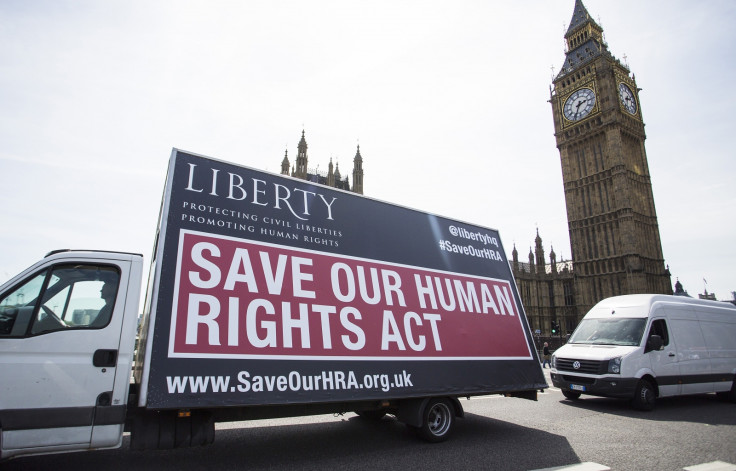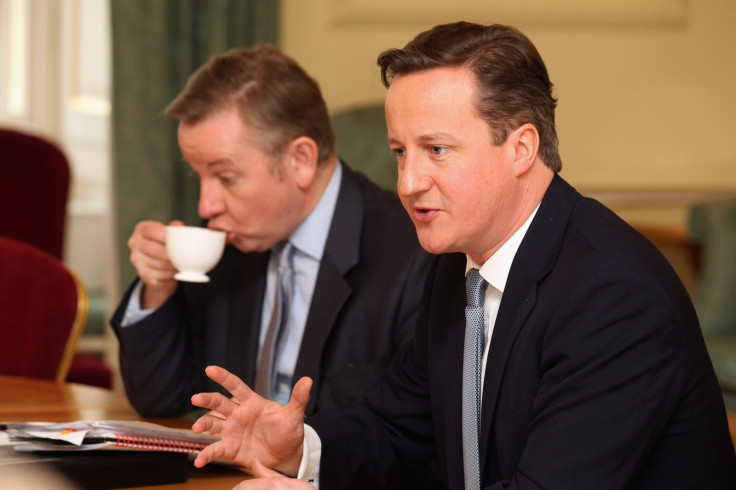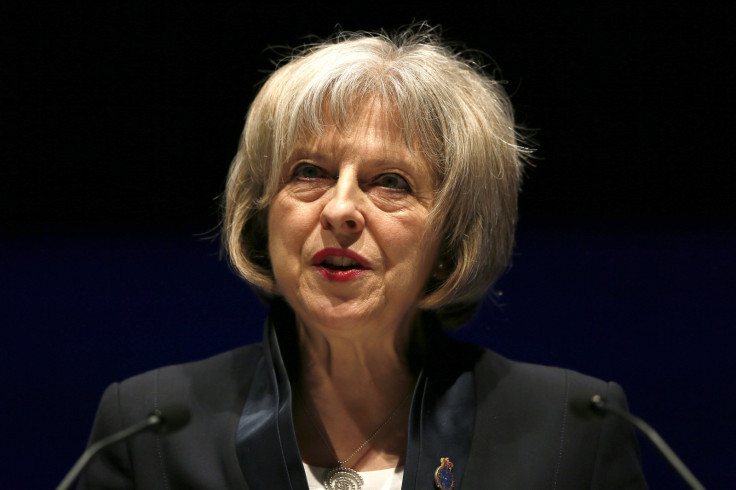Human Rights Act: What is the row over British Bill Of Rights all about?

The Conservatives' plan to dismantle the Human Rights Act and replace it with a British Bill Of Rights is still on track, despite a reported cabinet split over whether to withdraw from the European Convention entirely.
The Daily Telegraph reported Prime Minister David Cameron has ruled out withdrawing from the European Convention On Human Rights (ECHR), regardless of opposition from two of his senior ministers Michael Gove and Theresa May. Chancellor George Osborne has since denied any disagreement, however, saying there is "no dispute or division in our party about the policy because the policy is set out in our manifesto."
So what would the government hope to achieve by scrapping the Human Rights Act and replacing it with the new British Bill of Rights, but without leaving the ECHR?
What is the European Convention On Human Rights?
The ECHR is an international treaty to protect human rights and freedoms, which came into force in 1953 following the Second World War. It was fronted by Britain and the Conservative MP Sir David Maxwell-Fyfe chaired the committee that drafted the convention. It has nothing to do with the European Union and predates it by some years – you do not need to be a member of the EU to sign the Convention.
Rights and freedoms outlined in the Convention include: the right to life, access to the education system, the right to a fair trial, protection against torture and slavery and the freedom of speech, thought and religion. It also protects against punishment without law.
The European Court of Human Rights is an international court based in Strasbourg, which was set up in 1959 and implements the convention. Around 800 million Europeans in the 47 Council of Europe member states that have ratified the Convention are protected by the court.
If Cameron does follow through with the "halfway house" compromise, Britain would remain a signatory of the ECHR but would abolish the Human Rights Act, which enshrined the Convention into British law in 1998.

What does the Human Rights Act do?
The Human Rights Act was one of the major reforms of the last Labour government. The act gives effect to the rights set out in the European Convention on Human Rights, incorporating it into domestic UK law.
This essentially means two things: judges must read and give effect to legislation in a way that is compatible with the convention rights, and it is unlawful for a public authority to act in a way incompatible with a convention right. So all public bodies – the UK government, the police and the NHS, for example, must adhere to these rights.
Why does Conservative party want to replace it with a British Bill Of Rights?
Cameron wants to disassemble the legislation to "break the formal link" between the British courts and the European Court of Human Rights.
By introducing a British Bill Of Rights, the UK's Supreme Court will decide decided on matters, not the Strasbourg court. However, Britain will still be bound by the ECHR and the European court, if the Human rights act is scrapped without withdrawing from the convention.
Abolishing the Human Rights Act would still mean people wanting to bring human rights cases under the the ECHR would have to go to a Strasbourg court, which would slow down such cases and make them more difficult to bring.
So why get rid of it?
According to critics, the Human Rights Act has led to controversial judgements, such as concluding a ruling that banned UK prisoners from voting was unlawful. After the decision in 2013, Cameron said prisoners "damn well shouldn't" be given the right to vote – and called for the powers of the European court to be restricted.

The ECHR has prevented the government from deporting prisoners to countries where torture is routinely carried out because it breaches human rights.
Critics say the Human Rights Act has prevented terrorists from being deported, including a ruling that radical Islamist cleric Abu Qatada should not be deported to Jordan to face trial on terrorism charges.
What do supporters of the Human Rights Act say?
Supporters of the Human Rights Act say many cases have involved victims challenging governments for failing to protect them. Having a system of rights protected by a higher authority means countries cannot pick and choose at whim which rights they wish to protect.
There is nothing in the Act that prevents convicted criminals and terrorists from being locked up – instead, it requires serious offences, like murder, terrorism and rape, to be investigated by the police, who can be "held responsible for serious failures on their part".
Some argue that deporting terrorists to protect our national security does not make sense. Amnesty International argues it is safer to prosecute in the UK, and if found guilty, to imprison. Although Abu Qatada was deported to Jordan in 2013, he was found not guilty of terrorism charges relating to an alleged 1998 plot and cleared of being involved in a 2000 plot last year.
In the vast majority of cases, human rights law does not prevent the deportation of people who threaten the UK's national security. It does, however, stop the UK from deporting them to countries where the individual will likely face torture or inhuman treatment. Prior to the Human Rights Act, the law prohibited countries that respect human rights from deporting people to face torture in other countries.
Scrapping the Human Rights Act could reduce the UK's authority to speak out about human rights abuses elsewhere. Critics say it would leave Britain a "pariah state", which sends out the wrong message to other countries.
© Copyright IBTimes 2025. All rights reserved.






















